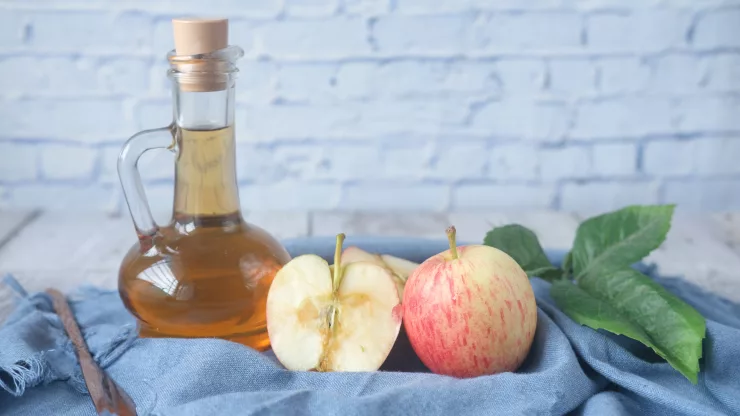Are you looking to lose weight but struggling to find the right foods to incorporate into your diet?
Look no further than the avocado, a delicious and nutritious fruit that has gained popularity in recent years for its potential weight loss benefits.
In this article, we will explore the science behind the avocado and weight loss, the nutritional value of the fruit, and how to incorporate it into your meals for maximum impact.
Jump to Section
Overview of the Avocado Fruit
Before diving into the weight loss benefits of avocados, it’s important to understand what they are and what nutritional value they offer.
Avocados are a fruit that comes from the avocado tree, native to Mexico and Central America.
They are rich in healthy fats, fiber, vitamins, and minerals, making them an excellent addition to any diet. Avocados come in many different varieties, with varying sizes and textures.
Understanding Weight Loss
How Weight Loss Works
To understand how avocados can aid in weight loss, it’s important to first understand how weight loss works.
In order to lose weight, you need to consume fewer calories than you burn through daily activities.
This creates a caloric deficit, which forces your body to burn stored fat for energy.
Factors that Affect Weight Loss
There are many factors that can affect weight loss, including age, gender, genetics, activity level, and diet. While avocados alone will not lead to significant weight loss, they can be a helpful addition to a balanced diet and active lifestyle.
The Nutritional Value of Avocado
Macronutrients in Avocado
A single avocado contains approximately 250-320 calories, depending on its size. The majority of these calories come from healthy fats, which can help you feel full and satisfied.
In addition to healthy fats, avocados are also a good source of fiber and protein.
Micronutrients in Avocado
Avocados are also rich in vitamins and minerals that are important for overall health. They are a good source of vitamin C, vitamin K, folate, and potassium, among other nutrients.
Comparison to Other Fruits
Compared to other fruits, avocados are unique in their high fat content. While this may sound counterintuitive to weight loss, the healthy fats found in avocados can actually aid in weight loss by helping you feel full and satisfied, as well as providing important nutrients.
Avocado and Weight Loss
The Science behind Avocado and Weight Loss
Studies have shown that incorporating avocados into your diet may lead to weight loss and improved overall health. One study found that participants who consumed half of a fresh avocado with lunch reported feeling more satisfied and had reduced cravings compared to those who did not eat avocado.
Benefits of Avocado for Weight Loss
In addition to helping you feel full and satisfied, avocados may also aid in weight loss by reducing inflammation in the body. Chronic inflammation has been linked to obesity and other health issues, and the healthy fats and antioxidants found in avocados can help combat inflammation.
How Avocado Affects Metabolism
Avocados have also been shown to have a positive impact on metabolism. One study found that consuming avocados increased the absorption of carotenoids, which are important for overall health and may aid in weight loss.
Avocado as a Substitute for High-Calorie Foods
Another benefit of incorporating avocados into your diet is that they can be used as a substitute for high-calorie foods. For example, replacing butter or mayonnaise with mashed avocado can significantly reduce the calorie content of a meal while adding important nutrients.
How to Incorporate Avocado into Your Diet
Ideas for Avocado-Based Meals
There are countless ways to incorporate avocados into your meals. Try adding sliced avocado to salads, sandwiches, or tacos, or mash it up to make guacamole.
Avocado toast has also become a popular breakfast option in recent years.
Avocado as a Snack
Avocados can also be enjoyed as a snack on their own. Simply slice an avocado in half and remove the pit, then sprinkle with salt and pepper or your favorite seasoning.
Avocado in Baking
Believe it or not, avocados can even be used in baking! Using mashed avocado as a substitute for butter or oil can make baked goods healthier and lower in calories.
Avocado Substitutes for Fats and Oils in Cooking and Baking
| Avocado | Butter | Oil |
|---|---|---|
| 1 cup mashed avocado | 1 cup butter | 1 cup oil |
| 1/2 cup mashed avocado | 1/2 cup butter | 1/2 cup oil |
| 1/4 cup mashed avocado | 1/4 cup butter | 1/4 cup oil |
Final Thoughts on Avocado and Weight Loss
Incorporating avocados into your diet can be a helpful tool for weight loss, thanks to their high healthy fat content, fiber, and nutrient density.
However, it’s important to remember that avocados alone will not lead to significant weight loss.
Rather, they should be used as part of a balanced diet and active lifestyle.
Summary of Benefits of Adding Avocado to Your Diet
- High in healthy fats, fiber, and nutrients
- Can help you feel full and satisfied
- May aid in weight loss by reducing inflammation and increasing metabolism
- Can be used as a substitute for high-calorie foods
Considerations for Avocado Consumption
While avocados offer many health benefits, they are also relatively high in calories. It’s important to consume them in moderation as part of a balanced diet.
Additionally, some people may be allergic to avocados or experience digestive issues after consuming them.
FAQ
Are avocados good for weight loss?
Yes, avocados can aid in weight loss when consumed as part of a balanced diet and active lifestyle. Their high healthy fat content, fiber, and nutrient density can help you feel full and satisfied, reducing the likelihood of overeating or snacking on unhealthy foods.
How many avocados can I eat in a day?
The number of avocados you can eat in a day will depend on your individual calorie needs. As a general rule, it’s best to consume avocados in moderation as part of a balanced diet.
Can avocados be used as a substitute for butter or oil?
Yes, mashed avocado can be used as a substitute for butter or oil in baking and cooking. This can make meals lower in calories and higher in nutrients.

With a deep passion for personal development, Ben has dedicated his career to inspiring and guiding others on their journey towards self-improvement.
His love for learning and sharing knowledge about personal growth strategies, mindfulness, and goal-setting principles has led him to create My Virtual Life Coach.
Contact Ben at [email protected] for assistance.




